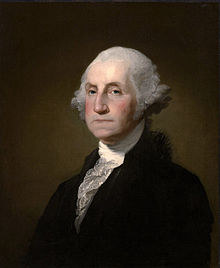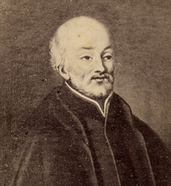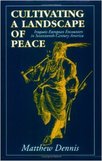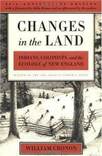|
AP US History students are expected to complete summer reading and video assignments before the first class meeting. These assignments will focus on course content preceding the American Revolution (APUSH Periods 1 and 2). Students' completion of their APUSH summer assignments will be assessed on a test to be administered during the first week of class.
While you will be expected to turn in some things on the first day of class, the bulk of your grade for the summer assignments will come from your test, so please keep this in mind while you are completing these assignments. APUSH TEACHERS who are interested in using these summer assignments may contact me for the password for copyrighted materials. You will need to be sure to share this password with your students so they can complete the assignment. APUSH STUDENTS who are not enrolled in Tom Richey's class should contact their own teachers directly for questions related to the summer assignment. |
Assignment #1: Native American Cultures |
APUSH Key Concept 1.1
|
|
|
The so-called "Period 1" of the AP US History course outline focuses on the period from 1491 (a generic designation for the Americas pre-contact) to 1607 (the establishment of the Jamestown Colony).
In this video lecture for AP US History students, I describe and contrast different Native American cultures over geographical regions of North America. After watching the lecture, the successful APUSH student should be able to label a map of pre-contact North America and be able to identify key tribal groups and describe the way of life in each region of North America. Students will be expected to turn in the following items completed by hand (NOT TYPED) on the first day of class: |
Assignment #2: Columbian Exchange & Atlantic Trade |
APUSH Key Concept 1.2
|
|
Before learning about the European colonies, it's necessary to place them within the system of Atlantic trade in which they existed. The permanent system of contact and trade between the Old and New Worlds that was established by Columbus' voyages is known as the Columbian Exchange. The best place to start learning about the Columbian Exchange is Wikipedia. The Wikipedia article on the Columbian Exchange as "the widespread transfer of animals, plants, culture, human populations, technology and ideas between the American and Afro-Eurasian hemispheres in the 15th and 16th centuries." Using this framework put forward by the article, I have designed a graphic organizer to help you organize the specifics of the Columbian Exchange in each of these areas. You may use the Wikipedia article and any other online resources that you find helpful - just be sure to make a note of what other sources you end up using. Please have the graphic organizer ready to turn in on the first day of class completed by hand (NOT TYPED).
|
|
|
A complex system of Atlantic trade developed over the course of the sixteenth and seventeenth centuries, becoming the basis for establishing permanent colonies that would produce raw materials for export while importing manufactured goods from their respective mother countries. The Atlantic slave trade was the most infamous part of the "triangular trade" that developed between Europe, Africa, and the Americas. This video from Ted-Ed is helpful for understanding the impact that the African slave trade had on Europe, the Americas, and especially on African society in the short and long term.
|

For a very brief and entertaining explanation of the Triangular Trade, you may want to take a look at this video from my YouTube BFF, HipHughes, who has taught US History for several years. HipHughes History has video lectures on a plethora of topics in US History that you may find helpful from time to time.
You can take a look at HipHughes' US History Explained playlist here: https://www.youtube.com/playlist?list=PL47F868B521713645 |
|
Assignment #3: Colonial Encounters Video Lectures |
APUSH Key Concepts
1.3 & 2.1 |
|
It is important that APUSH students know the key characteristics of Spanish, French, Dutch, and British colonizers and be able to compare and contrast the differing goals of each colonial power (APUSH Key Concept 2.1).
In these video lectures, I detail the key characteristics and goals of Spanish, French, and Dutch colonizers in addition to comparing and contrasting their economic pursuits and methods in dealing with the Native Americans they encountered. I've designed a graphic organizer that will be helpful for organizing this information. Please have the graphic organizer ready to turn in on the first day of class completed by hand (NOT TYPED). |
|
Assignment #4: Document Analysis (Colonization) |
APUSH Key Concepts 1.3 & 2.1
|
The following primary and secondary sources focus on each of the colonial powers (Spanish, French, Dutch, and British) and their relationships with Native Americans and their environments. In additional to factual information, also be sure to read for Point of View (POV) and purpose when reading the primary sources and for the author's thesis when reading secondary sources.
Assignment #5: Thirteen Colonies Lecture |
APUSH Key Concept 2.1
|
|
|
In my lecture on the Thirteen Colonies, I outline the key traits of the colonial regions (New England, Middle, and Southern). Students should be able to identify the key traits of each region and the key colonies of each region as well as compare and contrast the political, economic, social, and religious climate in each colonial region. Please have the following graphic organizer ready to turn in on the first day of class completed by hand (NOT TYPED):
|
Assignment #6: Lectures on the 13 Colonies
|
APUSH Key Concepts 2.1 & 2.2
|
|
In my lecture on the Virginia Colony, I discuss the initial difficulties that the English had in establishing a permanent settlement, the chartering of the Virginia Company, the hardships endured by the Jamestown settlers, and the advent of tobacco as a cash crop. The second part of the lecture focuses on labor forces employed in Chesapeake tobacco agriculture (indentured servants and slaves) and the strained relations between the colonies and the Powhatan Indians that culminated in the 1622 Indian Massacre.
|
AP US History is partly about challenging popular myths. One of these popular myths is that the Pilgrims and other settlers in the Massachusetts Colony came to the New World for "religious freedom." In reality, they only came over to create a religious commonwealth that was steeped in a culture of conformity. Roger Williams and Anne Hutchinson challenged that culture of conformity and began a tradition of religious toleration that would later be enshrined in the First Amendment.
|
|
|
Pennsylvania, a proprietary colony founded by William Penn, put Quaker principles into practice with the most generous religious toleration policy that existed in any of the Thirteen Colonies. Pennsylvania's economy was based on staple crop agriculture, so the (completely unrelated to the Quakers) Quaker Oats brand is actually somewhat suitable.
|







